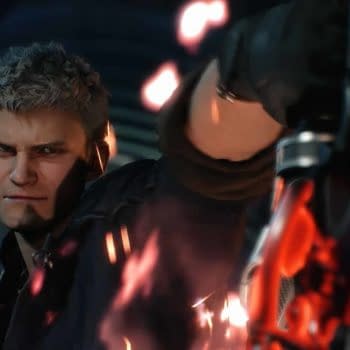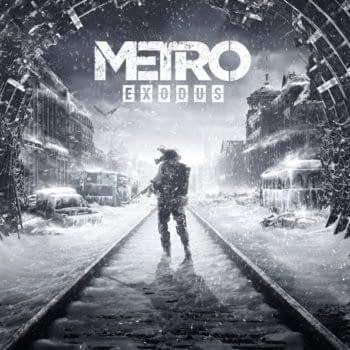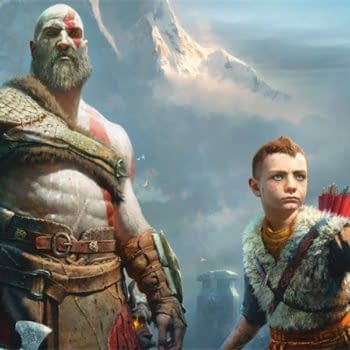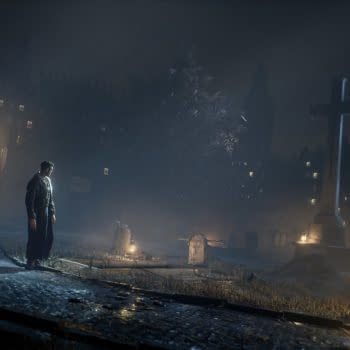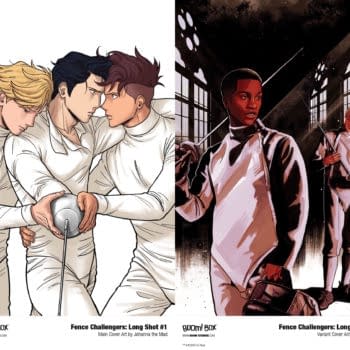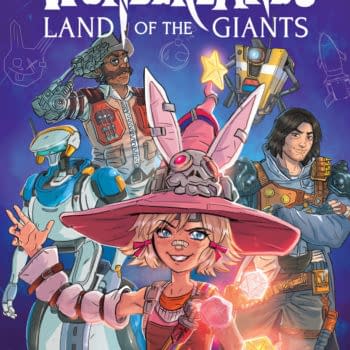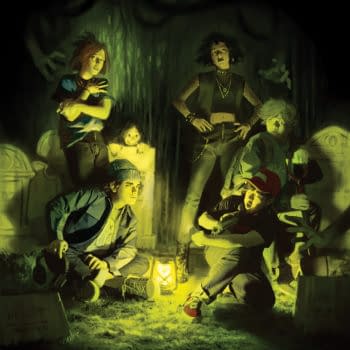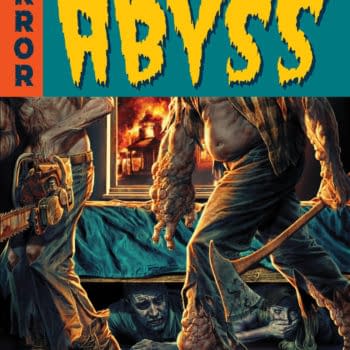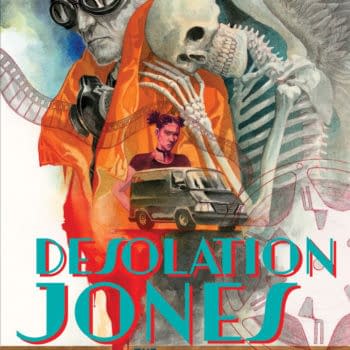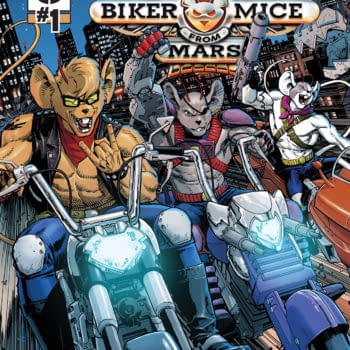Posted in: Comics | Tagged: Black Hammer, Comics, entertainment, jeff lemire
Jeff Lemire Talks To Us About His Latest Comic Series Black Hammer
By Octavio Karbank
Jeff Lemire has a new series coming out! You excited yet? You should be! His upcoming Dark Horse title Black Hammer is Mr. Lemire's take on the superhero genre. A brilliant writer with a unique and equally fascinating body of work, fans of Lemire should definitely check out Black Hammer as it's certainly worth a read. You can pick it up on July 20th.
–
OK: What is Black Hammer about?
Jeff Lemire: Black Hammer follows the lives of 5 superheroes that have been "wiped out of continuity" and a universe-shaking event and wake up on a farm in a small town and discover that they can't leave. So our story picks up 10 year later and they have integrated themselves in the town and have hidden their true identities, blending in as much as possible and living a strange surrogate family.
OK: How many issues will it be?
JL: Black Hammer is an ongoing series. I already have 18 full scripts written!
OK: What inspired the idea for this comic?
JL: I actually came up with Black Hammer back in 2007-2008 as I was finishing my Essex County graphic novels. At the time I planned on doing it as my own next graphic novel that I would write and draw. Back then, I was still only doing indie comics and I never anticipated a day when I would actually be working on mainstream super hero comics like I am now. So Black Hammer was sort of my way of expressing my love for the super hero genre, but filtering it through my own indie style.
Then, as things developed in my career, Black Hammer got put on the back burner so I could focus on doing Sweet Tooth at Vertigo. And, that also led to me writing a lot of mainstream super hero comics since then. But I never forgot Black Hammer and would pull it out and tinker with it once a year or so. But it became obvious that I would never have time to draw it myself, with all the other projects I have lined up to draw now, so I started thinking of doing it with a collaborator.
So, while it still remains a love letter to the super hero genre, I'm adding my own experiences working into super hero books into the mix of that original concept now too.
OK: How did you pitch Black Hammer?
JL: I pitched the book back in 2008 to Diana Schutz who wanted to do it. But, like I said, Sweet Tooth came together so it got put on the back burner. In 2014 I went back to Dark Horse with it. I felt I owed them a "first look" since that had supported the project back in "08.
OK: There are definitely throwbacks/nods to both Golden Age comics/heroes and comics in general. Can you speak on that?
JL: I tried to represent each era of super hero comics in the characters. So Golden Gail and Abraham Slam are definitely Golden Age inspired. Colonel Weird is a Silver Age sci fi character and Barbalien a mix of Silver Age and Bronze Age sword and sandals. And Dragonfly is 70's horror comics and 90's early Vertigo.
This was the original inception, and of course the characters tended to evolve and move beyond these initial trappings as I developed them more.
OK: With that in mind, what do Golden Age and/or classic comics and heroes mean to you?
JL: I grew up with super heroes and comics. Different eras of comics and super hero history mark different times in my life and what I was into then. Even though I wasn't alive during the Golden or Silver Age of comics, I still got really invested in those eras at different points in my life.
So super heroes and this history of comics is intertwined with my own life in a deep way. I hope that love shines through in Black Hammer.
OK: Was Black Hammer written with a specific audience in mind and throughout the creative process do you worry about what the audience's reception might be?
JL: I don't say this to be dismissive of my readers, or of comic audiences, because I do respect them and I want to make work that they enjoy, but the only way I can really do that is to be true to myself.
So I really don't think about the audience all that much. I'm my own worst critic. I am trying to challenge myself with each project to grow and to be the best writer and cartoonist I can be. If you start thinking about what audiences want your natural creative compass can start to get really skewed. Comic audiences are incredibly diverse and complex. You can't please everyone. I have to be true to myself, And if I'm proud of the work I do, chances are other people will be too.
OK: You've worked on many different comics of varying genres. What's it like working on Black Hammer, which seems to blend tropes and genres and what was your favorite part of writing Black Hammer?
JL: I get to draw from the entire history of comics and superheroes. It's hard not to be inspired by that. I get to take everything I love and then mix it together into something new. And I don't need to worry about continuity or editorial interference. I get to do whatever I want. But above all that, I really just love the characters. Forget all the super hero stuff, I just love these characters as people and love exploring them.
OK: (If I'm totally off base here, don't worry about it. I might be reading into things too much) Would you consider Black Hammer at all a commentary on mainstream superhero books? If so, what are the challenges involved with writing superheroes and superhero books like Black Hammer?
JL: Commenting on modern super hero comics is by no means the primary goal or concern behind Black Hammer, but it can't help but work its way in there in certain ways. And I work in mainstream super hero comics now too, so it's something I know first hand.
Writing superhero comics is very challenging, but also it can be very rewarding. I don't really consider writing Black Hammer to be writing super heroes. It just feels like it's own little world away from all of that. You certainly don't need to like super hero comics to read Black Hammer.
OK: How was it working with Dean Ormston as the artist?
JL: Dean was one of the first artists I thought of. I've loved his work since his "Books of Magick: Life During Wartime" series at Vertigo and had the chance to meet him at a comics festival in Leeds a few years back. Luckily Dean liked the project and came on board.
I had done sketches and art for the book back in 2008. I showed those to Dean, but told him to take what he wanted and then make it his own. So what ended up in the book was really very different from my original incarnations, and much better.
I think we were certainly playing off of certain super hero archetypes, but filtered through Dean's singular style these became something else entirely as well. And then adding Dave Stewart to the mix pulls it all together.
OK: What makes for a great writer?
JL: Hell if I know. There's no formula. I'm not too concerned with being perceived as a great writer. I just want to make great comics. I still consider myself a cartoonist first and a writer second.
Octavio Karbank is a writer and bona fide Whovian. Living in Massachusetts, you can find him on Twitter @TymeHunter and his blog www.cozmicventures.com




